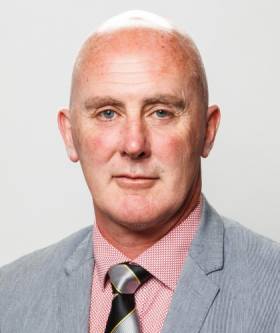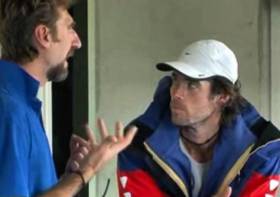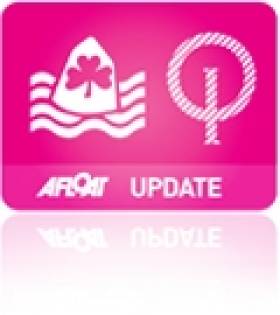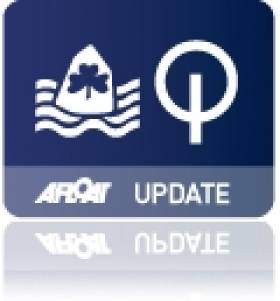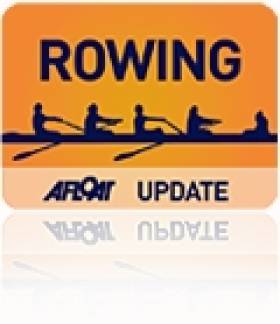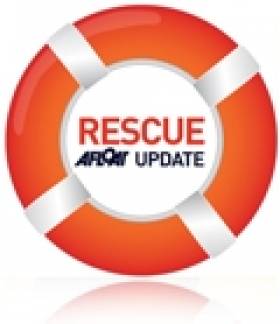Displaying items by tag: coach
Ireland Olympian Tony O'Connor to Coach New Zealand Men's Eight
#Rowing: New Zealand have chosen Tony O’Connor to coach their senior men’s eight. The 49-year-old former oarsman has been a successful coach at junior level, with the school at which he teaches, Christ’s College, Christchurch, and in the international set-up. He coached the New Zealand junior four which took silver at the World Junior Championships in 2017.
O’Connor represented Ireland at two Olympic Games (1996 and 2000), and was part of the lightweight four which finished fourth in 1996. He won gold in the lightweight pair in 2001 World Championships with Gearóid Towey. He partnered Neville Maxwell in the lightweight pair which set the world’s best time in 1994.
David McGowan Chosen as New Ireland Heavyweight Coach
#Rowing: David McGowan from Australia will be the new Ireland heavyweight coach. As an athlete he competed in the Australia four which finished fourth in the Olympic Games in Athens in 2004. As a coach he had a successful run in the Netherlands. He coached the lightweight eight to gold at the World Championships in 2007, then took the men’s heavyweight eight through the Olympic Qualifiers in 2008 and they went on to the Beijing Olympic Games. He coached with Nereus, the famed student club from Amsterdam and in Sweden. Most recently, he was appointed head coach at Swan River Rowing Club in Perth in Australia.
He will take up his post next month and will be expected to create a pathway for Irish rowers from junior and university levels on to the Ireland high performance system.
In a statement from Rowing Ireland, McGowan said: “I feel privileged to have been offered this opportunity in such an exciting time for Irish rowing. I look forward to both working with Rowing Ireland and rowing in Ireland and I am excited to be joining the team shortly.”
Rowing Ireland chief executive, Hamish Adams, added: “We are delighted to have secured the services of an experienced international coach like David and I believe he will deliver real value to our heavyweight programme across the island of Ireland. Development of the heavyweight category offers a great opportunity to us as a rowing nation and we feel it is important to engage with all our stakeholders to deliver on our potential in this area.”
Baltimore Optimist Training Week Attracts 160 For Spring Break
#optimisttraining – IODAI, the International Optimist Dinghy Association of Ireland has over 160 signed up for its Spring training week (15th February – Friday 20th February) which is open to all IODAI members and will be held in Baltimore Sailing Club writes the IODAI's Aidan Staunton.
As Afloat reported previously last October the village of Baltimore will be taken over by approximately 160 sailors and their families for the week of February mid-term. Coaches have all been booked and typically they are a mix of the top Irish and international coaches; from Greece, Portugal, Sweden and Poland,
Training will be provided daily for sailors from Regatta fleet level (must be able to sail a triangle)- to those who are competing internationally. We particularly would like to encourage sailors who have not attended an event outside their own club in the past, to consider coming to Baltimore, which is a non-competitive, fun week intended to build enthusiasm for sailing and to allow sailors from around the country to get to know each other. The Baltimore event is considered to be one of the top International clinics in Europe and ends with a one day regatta on the last day.
It is very much a family-oriented event, with a programme of activities for children too young to sail (Fitbones), and events also organised for adults, such as the 'How to Rig an Oppi' class for novice parents!
The event is organised by IODAI which is comprised of volunteers, mainly parents of sailors, who organise the Optimist events calendar. Because everyone is a volunteer, Baltimore is an 'all hands on deck' week, with parents encouraged to lend a hand with the work that goes into making it such a special event. Helping out with sailors lunches, doing slip duty, rescue on the water, and helping at the social activities, means that all parents will get to know each other just as well as the sailors do.
An IODAI forum takes place during the Baltimore week where all parents are invited to express their views or seek information on the running of the Optimist class.
Optimist Class Seek Sailing Coaches for Busy 2014 Season
#optimist – The Optimist class is seeking three sailing coaches for international duty next season. Applications are sought for coaching IODAI Optimist Teams at International Events in 2014
1) Europeans 12-20th July 2014 (Dublin: Royal St George Yacht Club)
2) The international development team at the French nationals 12-20th July 2014 (An ability to communicate in French would be recommended)
3) Assistant Coach for U 12 squad to attend the British Nationals in Weymouth
In all cases the coach should be available four days before the event to possibly give the team additional training or in the case of the French nationals for possible travel with the boats. Also ideally the chosen coach would be available to coach at Baltimore 15th – 22nd Feb to become familiar with the children / parents & IODAI Committee.
For events 2 & 3 please indicate if you have a clean drivers licence.
Please forward your CV stating clearly which position you are applying for to [email protected] by December 15th 2013.
#Rowing: John Armstrong, who has been coaching the Ireland pararowing team, has been chosen as the new Northern Ireland Talent Development coach. Armstrong’s decorated career as a rower included a bronze medal at the World Championships in 1997 and gold and silver in World Cup regattas in 1999, all in a lightweight quadruple scull. He won eight Irish Championships as a lightweight single sculler and four as a senior single sculler. His son, Jason Armstrong, was part of the Queen’s University novice coxed four which won a dramatic final at the Irish Championships last month.
The announcement of his appointment said: Rowing Ireland is delighted to announce the appointment of John Armstrong as Northern Ireland Talent Development Coach. John will be responsible for the co-ordination and development of the Northern Ireland Rowing Talent Development programme. This will encompass the co-ordination and delivery of coaching to athletes identified as having the potential to achieve ‘podium’ success. He will have lead responsibility for all matters pertaining to the successful delivery of the Talent Development programme, which will necessitate effective partnership working with a variety of partners that will include: clubs, schools, individual athletes, coaches, service providers, parents and/or guardians.
John will take up the position on September 2nd 2013. We wish him every succcess in his new role.
Lifeguarding in Ireland
It might be hard to believe it but there is plenty of work here in Ireland for the professional lifeguard, from working in a leisure centre swimming pool, to the beautiful beaches around the coast and a beach lifeguard is needed to attain a surf coach qualification according to Muirtí Ó Cearnaigh of Atlantic Coast Lifeguards.
There are slight variations in the qualifications and experience needed to work in both these industries. A lot of people think a lifeguard is a person who is there to save lifes in the event of an accident happening but in actual fact they are there to prevent the incident happening in the first instance. With this they learn about every hazard and risk that is in their particular enviroment and the prevention methods needed to provide safety to the public.
They also learn techniques needed in the event of of actually preforming a rescue, which will include the use of communication with public and casualty, working in a team enviroment, rescue equipment, how to work well with other emergency services, life support, first aid and also train hard in terms of personal fitness.
When you are deciding whether to become a pool lifeguard or beach lifeguard, it really depends on your personal swimming abilty, a pool is a closed enviroment so there is minimum swimming required, where as the beach is a open enviroment so a strong fitness level in swimming is required.
There are two organisations in Ireland in which you can turn to to aquire the certification needed to work in either industry. Institute of Qualified Lifeguards Ireland (Lifeguards Ireland) which receive certification form Royal lifesaving soceity which is endoresed by the international lifesaving federation. And Irish Water Safety which have a very strong youth training programme set out in most counties.
When looking for certification look for out the (NPLQ) National Pool Lifeguard Qualification or (NBLQ) National Beach Lifeguard Qualification, you can find full information on both of these on www.atlanticcoastlifeguards.com where you can also find up and coming courses and any pre requisits needed for each.
Also check out www.lifeguardsireland.com & www.iws.ie for information on other lifesaving or lifeguarding courses nationwide.
Reasons why we think you will want to become a lifeguard:
• First and foremost you are providing an amazing public service. You will without a doubt make people feel confident, happier and safer just by being on the poolside and you could potentially save a life.
• Being a lifeguard offers a fantastic foundation to a career in the leisure industry. Many senior managers began their rise to leisure stardom by lifeguarding at their local pools
• The opportunity to get fit. Not only will you have to have a basic level of fitness to become a lifeguard but you will be encouraged to stay fit and get fitter. Many pools will give their lifeguards discounted or even free memberships.
• You get to work with a team of young like minded people, so there's plenty of opportunity to increase your social circle!
• The hours are flexible and perfect for those of you who need to fit studying into your busy days
• If you're a competitive type there is plenty of opportunity to show off your lifeguarding talents in events like the National Pool Lifeguard Championships (team event) and the Lifeguard Triathlon
• If you find you really enjoy lifeguarding you can take it up as a competitive sport and compete regularly for your local club.
• Lastly but still very importantly, you will gain a life skill that will come in handy for the rest of your life.


























